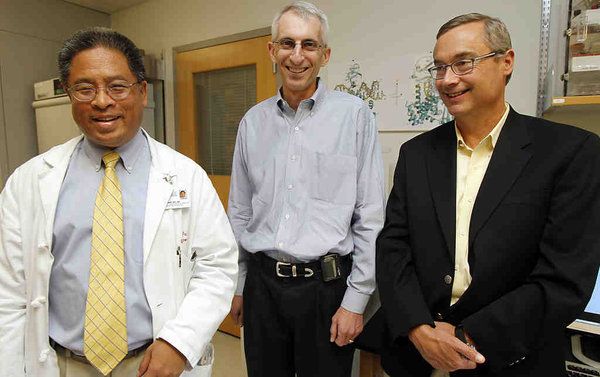
 You are what you eat- it’s something health food advocates have warned us all along, but only recently have researchers completed a study that proves it. The study, published in Science Express and conducted by a team of researchers at the University of Pennsylvania led by Dr. Gary Wu of the Perelman School of Medicine, found that gut bacteria that reside on the inside and outside of the intestines grow at varying rates depending on what a person consumes. The study divided 98 volunteers into two diet groups - one rich in meat, the other rich in vegetation. Within a single day’s time, the researchers observed significant changes in the volunteers’ gut bacteria composition, proving that a person’s diet has an immediate impact on the bacteria growing in their body.
You are what you eat- it’s something health food advocates have warned us all along, but only recently have researchers completed a study that proves it. The study, published in Science Express and conducted by a team of researchers at the University of Pennsylvania led by Dr. Gary Wu of the Perelman School of Medicine, found that gut bacteria that reside on the inside and outside of the intestines grow at varying rates depending on what a person consumes. The study divided 98 volunteers into two diet groups - one rich in meat, the other rich in vegetation. Within a single day’s time, the researchers observed significant changes in the volunteers’ gut bacteria composition, proving that a person’s diet has an immediate impact on the bacteria growing in their body.
To carry out their investigation, the team monitored the diet of participants over a ten day period and checked for the presence of specific bacteria in their stool samples. They discovered that those who had a meat-rich diet had a greater amount of Bacteroide genus, while the ones who had a fiber-rich diet had more Prevotella bacteria. Human naturally have these bacteria in their gut - but only one or the other can be present. Most of the participants started out in the Bacteroides group (since the Western diet is rich in meat), transitioned to the Prevotella group when placed on the fiber-rich diet, and then switched back to Bacterioides when they returned to their usual diet.
[caption id="attachment\\_1733" align="alignleft" width="272" caption="Left to right: Drs. Gary Wu, James Lewis, and Frederick Bushmann of the University of Pennsylvania"][](http://sciencereview.berkeley.edu/wp-content/uploads/2011/09/20110902\_inq\_he1bug02-a3quud.jpg)[/caption]
Interpreting the data collected from stool samples was a major challenge for the team. “The enormous amount of variability present from person to person: each person's microbiome is quite unique,” says Christian Hoffman, a member of the research team. “The samples coming from one individual are very similar to each other, while the similarity between individuals is smaller, making it more complicated to find the overall patterns.” Hoffman said that the team is working on improving their tools to gain more precision in the work. The team wants to create more efficient strategies to derive results in a easier and precise manner.
One potential application of their research is to help find a solution to Crohn’s Disease, which affects more than 1.5 million Americans. Crohn's Disease is a chronic gastrointestinal condition whose symptoms include abdominal pain, bloody stool, and weight loss. Its cause remains unknown, but scientists believe that gut bacteria plays a large role. As a result, the UPenn researchers believe that diet-mediated control of intestinal bacteria could be an effective method for preventing Crohn’s Disease.
Further research will shed light on additional applications of their work and deepen our understanding of what lives inside us. Until the results are in, though, I'll just go and eat one last juicy Chipotle burrito. Yum!
Many thanks to Christian Hoffman for discussing his research with me.
Wu GD, Chen J, Hoffmann C, Bittinger K, Chen YY, Keilbaugh SA, Bewtra M, Knights D, Walters WA, Knight R, Sinha R, Gilroy E, Gupta K, Baldassano R, Nessel L, Li H, Bushman FD, & Lewis JD (2011). Linking Long-Term Dietary Patterns with Gut Microbial Enterotypes. Science (New York, N.Y.) PMID: 21885731



